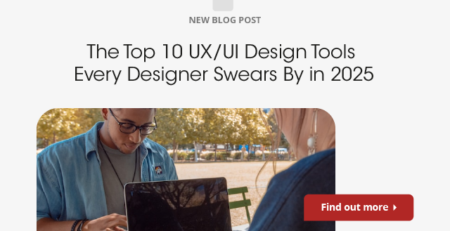Mastering Job Interviews: Essential Tips and Answers to Top Questions
Job interviews can be daunting, but with the right preparation, you can present yourself as the ideal candidate for any position. This comprehensive guide delves into essential job interview tips, outlines the most frequently asked questions, and provides strategic advice on how to answer them effectively. Whether you’re a first-time job seeker or a seasoned professional, understanding what potential employers are looking for and how to demonstrate your skills and experience can significantly enhance your chances of making a positive impression.
Firstly, it’s crucial to understand the purpose of a job interview. It’s not only about assessing your qualifications and professional background but also about gauging your interpersonal skills and cultural fit. Therefore, preparation goes beyond rehearsing answers to common questions; it involves researching the company, understanding its industry, and aligning your career goals with the company’s objectives.
Another key aspect of preparation is practicing your delivery. This includes not only what you say but how you say it. Body language, eye contact, and tone of voice all play critical roles in conveying confidence and competence. Moreover, preparing questions to ask the interviewer can demonstrate your interest in the role and your strategic thinking.
Handling tough interview questions with poise is another critical area to master. These questions often probe deeper into your professional experiences and challenges, requiring not just factual responses but also a demonstration of your problem-solving and critical thinking skills.
Finally, post-interview etiquette can also influence the hiring decision. Sending a thoughtful thank-you note can reinforce your interest in the position and help keep you top of mind among the candidates. With these strategies in mind, let’s explore some of the most common interview questions and how best to answer them.

Exploring Opportunities with iCreatives: A Creative Staffing Agency
For professionals seeking creative jobs, navigating the competitive landscape can be daunting. Whether you’re a graphic designer, a digital marketer, or a content creator, finding the right opportunity that matches your skills and aspirations can often seem like searching for a needle in a haystack. This is where icreatives, as a creative staffing agency, steps in, serving as a bridge between talented individuals and leading companies.
At icreatives, we specialize in identifying and placing talent in various creative roles across industries. We understand the nuances of creative jobs and possess the expertise to match candidates with positions that truly fit their skill set and career goals. By leveraging our extensive network and industry insights, we open doors to opportunities that might otherwise remain inaccessible to individual job seekers.
One of the primary advantages of partnering with icreatives is our deep-rooted connections within the creative industry. We are often the first to know about job openings, some of which may not be advertised publicly. For companies, this means access to a pool of vetted candidates who can bring fresh ideas and innovation to their projects. For job seekers, it means access to a broader array of job opportunities that align with their career goals and creative passions.
Moreover, icreatives provides invaluable guidance throughout the job search process, including tailored interview tips and strategies. From refining resumes to preparing for interviews, we work closely with candidates to enhance their marketability. We provide insights into industry trends, salary benchmarks, and skills in demand, empowering creative professionals to make informed decisions about their career paths.
Whether you’re just starting out in your creative career or looking to make a strategic move, icreatives can be a powerful ally. We not only provide access to exclusive job openings but also offer the guidance and support needed to navigate the complex terrain of the creative job market. By partnering with us, you can significantly enhance your chances of finding a fulfilling and rewarding creative role, equipped with the right interview skills to make a stellar impression. For more tips on advancing your career, explore how to use a staffing agency.

What are the best ways to prepare for a job interview?
Preparing for a job interview is crucial to making a good impression and can be the difference between success and failure. Effective preparation involves several steps, from understanding the job role and company culture to practicing your responses to common interview questions. Here are ten comprehensive paragraphs to guide you through the preparation process:
- Research the Company: Start by thoroughly researching the company. Visit their website, read news articles, and understand their products, services, and industry position. This knowledge will help you tailor your answers and show genuine interest in the company.
- Understand the Job Description: Analyze the job description to identify the key skills and competencies required. Make a list of your own experiences and achievements that match these requirements.
- Review Common Interview Questions: Prepare answers for common interview questions such as “Tell me about yourself,” “What are your strengths and weaknesses?” and “Where do you see yourself in five years?” Focus on responses that highlight your skills and experiences relevant to the job.
- Practice Behavioral Questions: Employers often use behavioral questions to understand how you handle various work situations. Practice the STAR method (Situation, Task, Action, Result) to structure your answers effectively.
- Mock Interviews: Conduct mock interviews with friends or mentors to gain confidence and receive feedback. This practice can help you improve your body language and answer delivery.
- Plan Your Outfit: Choose professional attire that fits the company’s culture. Dressing appropriately can make a significant first impression.
- Prepare Questions to Ask: Have a list of questions ready to ask the interviewer. This shows your interest in the role and helps you assess if the company is a good fit for you.
- Organize Your Documents: Prepare and organize all necessary documents, such as your resume, cover letter, references, and any work samples, if applicable.
- Plan Your Journey: Ensure you know the interview location and how long it takes to get there. Arriving on time is crucial.
- Relax and Rest: Get a good night’s sleep before the interview day. Being well-rested will help you stay alert and calm during the interview.
By following these steps, you can ensure that you are well-prepared and ready to make a great impression at your next job interview. For more insights on enhancing your interview performance, consider reading about how to conduct a performance review.
How should you answer the question “Tell me about yourself” in a job interview?
One of the most common opening questions in a job interview is “Tell me about yourself.” This question can set the tone for the rest of the interview, so it’s important to answer it effectively. Here are ten paragraphs that outline how to craft a compelling response:
1. Start with a Strong Introduction: Begin by briefly introducing your professional background. Mention your current role, your key responsibilities, and any recent achievements. This sets a professional tone for your answer.
2. Highlight Relevant Experiences: Transition into discussing your previous job experiences that are relevant to the position you’re applying for. Focus on the roles and projects that align with the job description.
3. Discuss Your Skills: Mention the skills you’ve developed over your career that make you a strong candidate for the position. Be specific and relate these skills to the requirements of the job.
4. Include a Personal Touch: Add a brief personal element that relates to your professional journey. For example, you might explain how your passion for the industry motivated your career choices.
5. Keep It Concise: While it’s important to provide enough detail, keep your answer concise and focused. Aim for a response that lasts no longer than two minutes.
6. Be Positive: Maintain a positive tone throughout your answer. Focus on your achievements and strengths rather than any negative aspects of your past roles.
7. Tailor Your Answer: Tailor your response to the company and position. Mention aspects of your experience that are particularly relevant to the job and company culture.
8. Practice Your Delivery: Practice your answer multiple times. This will help you deliver it smoothly and confidently during the interview.
9. Use Professional Language: Use professional language and avoid slang or overly casual phrases. This helps maintain the professionalism of your response.
10. End with a Transition: Conclude your answer by segueing into how you believe your background will allow you to contribute effectively to the team or company.
By structuring your response to “Tell me about yourself” in this way, you can provide a comprehensive and engaging overview of your professional background while setting a positive tone for the remainder of the interview. For further reading on creating a positive impression, check out 10 ways to recognize employees.
What are some effective strategies for answering behavioral interview questions?
Behavioral interview questions are designed to assess how you’ve handled various work situations in the past, giving insight into how you might perform in the future. These questions require specific examples and detailed answers. Here are ten paragraphs outlining effective strategies for answering behavioral interview questions:
1. Understand the Purpose: Recognize that behavioral questions aim to assess specific competencies such as leadership, problem-solving, and teamwork. Understanding the underlying competencies can help you choose the most relevant stories.
2. Use the STAR Method: Structure your answers using the STAR (Situation, Task, Action, Result) method. This helps you provide a clear and concise response, ensuring you cover all aspects of the example.
3. Prepare Stories in Advance: Identify several experiences from your past work that demonstrate your skills and achievements. Prepare to discuss these stories in detail.
4. Be Specific: Provide specific details in your answers. Vague responses can make it difficult for the interviewer to understand your role and the impact of your actions.
5. Focus on Your Role: Even if the situation involved a team, focus on your contributions. Clearly articulate what actions you took and why.
6. Quantify Results: Whenever possible, quantify the results of your actions. This could include increases in revenue, decreases in costs, improvements in efficiency, or other measurable outcomes.
7. Select Relevant Examples: Choose examples that are most relevant to the job you’re applying for. This shows that your past experiences have prepared you for this specific role.
8. Practice Your Delivery: Rehearse your answers to ensure clarity and confidence. Practicing out loud can help you refine your delivery and timing.
9. Stay Positive: Focus on positive outcomes and learning experiences. Avoid criticizing former colleagues or employers in your responses.
10. Reflect on Lessons Learned: Conclude your answers by reflecting on what you learned from the experience. This shows your ability to learn and grow from challenges.
Using these strategies, you can effectively answer behavioral interview questions, demonstrating your qualifications and fit for the role. For more tips on enhancing your professional skills, consider exploring tips for managing a remote work force.

How can you handle stress and pressure during a job interview?
Job interviews can be stressful, especially when the stakes are high. Handling stress and pressure effectively can not only improve your performance during the interview but also demonstrate your resilience and composure to potential employers. Here are ten paragraphs with tips on managing stress during a job interview:
1. Prepare Thoroughly: Adequate preparation is the best way to reduce interview stress. Knowing you are well-prepared can boost your confidence and reduce anxiety.
2. Practice Mindfulness Techniques: Engage in mindfulness techniques such as deep breathing or meditation before the interview. These practices can help calm your mind and reduce stress.
3. Visualize Success: Use visualization techniques to imagine a successful interview experience. Picturing positive outcomes can enhance your mindset and performance.
4. Arrive Early: Arriving early allows you to acclimate to the interview environment and reduces stress caused by unforeseen delays.
5. Adopt a Positive Attitude: Maintain a positive attitude throughout the interview process. Remind yourself of your qualifications and past successes.
6. Use Stress to Your Advantage: Channel any nervous energy into enthusiasm for the role and company. This can transform stress into a positive force that demonstrates your passion.
7. Practice Good Body Language: Adopting confident body language, such as maintaining eye contact and sitting up straight, can not only convey confidence but also help you feel more self-assured.
8. Prepare for Difficult Questions: Anticipate tough questions and prepare your responses. Knowing you have ready answers can alleviate stress.
9. Take Your Time: If you feel overwhelmed by a question, it’s okay to take a moment to collect your thoughts. Pausing before responding can help you give a more considered answer.
10. Follow Up Confidently: After the interview, send a thank-you note to express your appreciation and reinforce your interest in the position. This can help you feel proactive and positive about your interview performance.
By adopting these strategies, you can effectively manage stress and perform at your best during job interviews. For additional insights into professional development, check out how to become an effective remote manager.
What should you do after the job interview?
The steps you take after a job interview can be just as important as how you perform during the session. Proper follow-up can reinforce your interest in the position and keep you on the radar of the hiring managers. Here are ten paragraphs outlining what you should do post-interview:
1. Send a Thank-You Note: Shortly after the interview, send a personalized thank-you note to each interviewer. Express your gratitude for the opportunity and reiterate your interest in the role.
2. Reflect on Your Performance: Take some time to reflect on your interview performance. Consider what went well and what could be improved for future interviews.
3. Review Your Notes: If you took notes during the interview, review them to remember key details about the position and the company culture. This information can be useful if you receive a job offer.
4. Follow Up Appropriately: If you haven’t heard back within the timeframe specified by the interviewer, it’s appropriate to send a polite follow-up email. Inquire about the status of your application and express your continued interest.
5. Keep Applying: Don’t stop your job search while waiting for a response. Continue applying for other positions that interest you.
6. Prepare for the Next Steps: If you are invited for a second interview, begin preparing right away. Review your notes from the first interview and think about what additional information you can provide.
7. Stay Professional: Regardless of the outcome, maintain professionalism. If you’re not selected, politely ask for feedback and express your willingness to consider future opportunities.
8. Update Your LinkedIn Profile: Keep your LinkedIn profile updated with any new skills or experiences. This can be beneficial for future job opportunities.
9. Network: Continue to build your professional network. Connections made during your interview process can lead to other opportunities, even if you don’t get the job.
10. Stay Positive: Job searching can be challenging, but staying positive is crucial. Each interview is a learning experience that can prepare you for the right opportunity.
Following these steps can help you navigate the post-interview phase effectively.
Conclusion
Mastering job interviews requires a blend of preparation, practice, and poise. From researching the company to sending a thoughtful follow-up note, each step you take should aim to demonstrate your qualifications, cultural fit, and enthusiasm for the role. Remember, each interview is an opportunity to learn and grow. By applying the strategies discussed in this guide, you can enhance your interview skills and increase your chances of securing your desired job.
As you continue to navigate your career path, keep seeking knowledge and improving your skills. Whether it’s learning how to manage remote teams or understanding the nuances of behavioral interview questions, each piece of knowledge contributes to your professional growth. Embrace the journey, and don’t hesitate to seek resources that aid in your development, such as the various insights provided by our icreatives blog.
Lastly, remember that the job search process can be unpredictable. Stay adaptable, keep networking, and maintain a positive outlook. Your next job interview could be the gateway to an exciting new chapter in your career. Good luck!
In today’s competitive market, finding the right creative and marketing expert can be a challenge. But with icreatives, you’re in experienced hands. With 37 years in staffing and a track record of matching more than 10,000 employees to over 1,000 companies worldwide, we know how to connect you with the best. Plus, you only pay if you hire—there’s no risk, only results.Ready to find your perfect creative or marketing expert? HIRE WITH ICREATIVES today!












